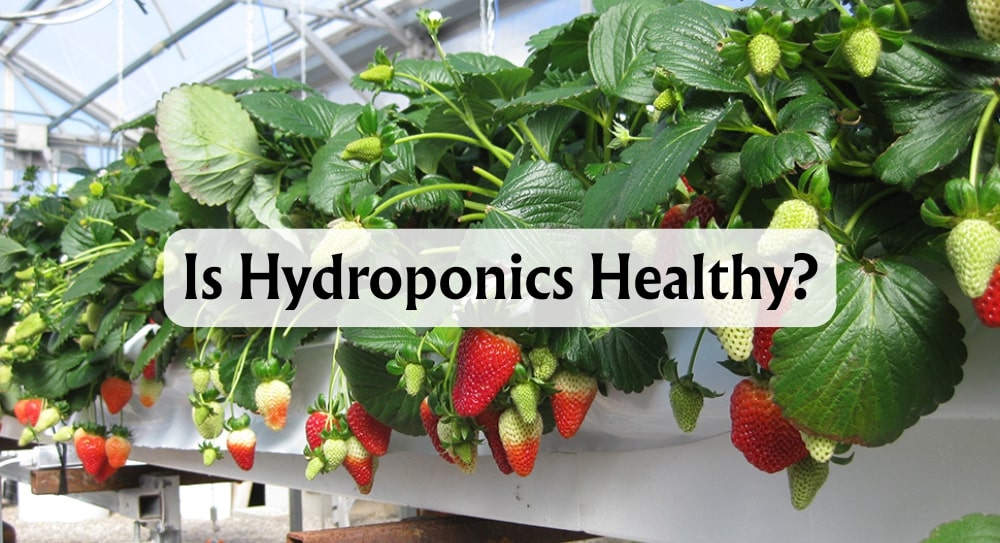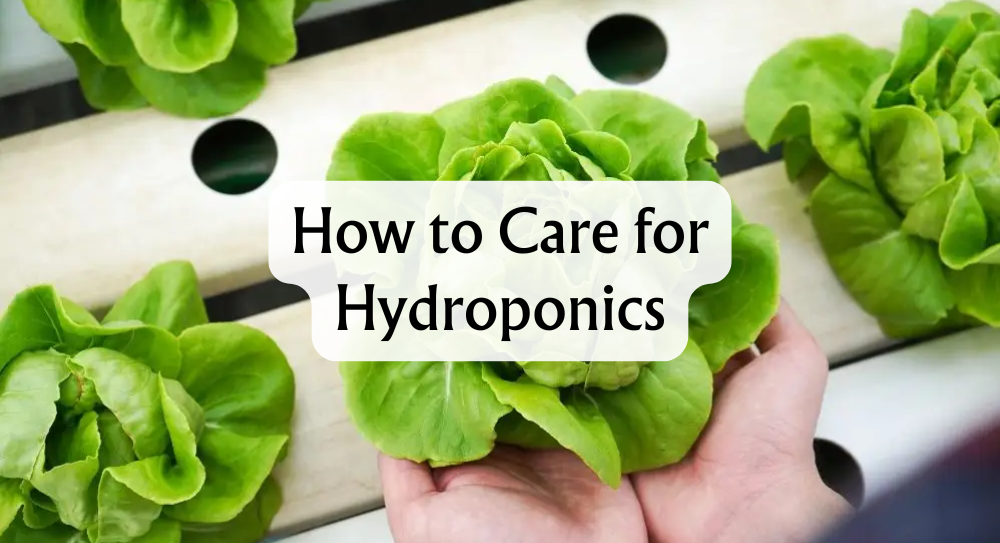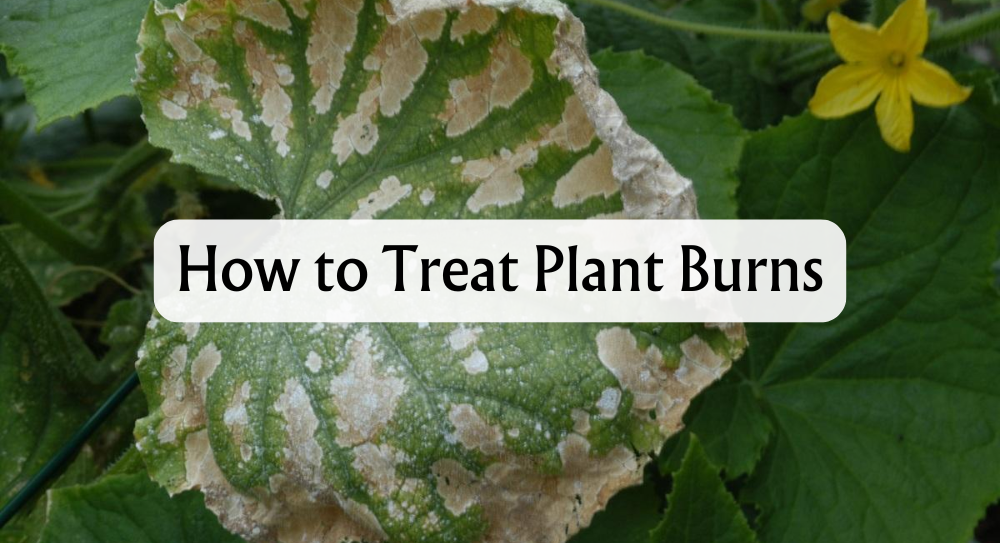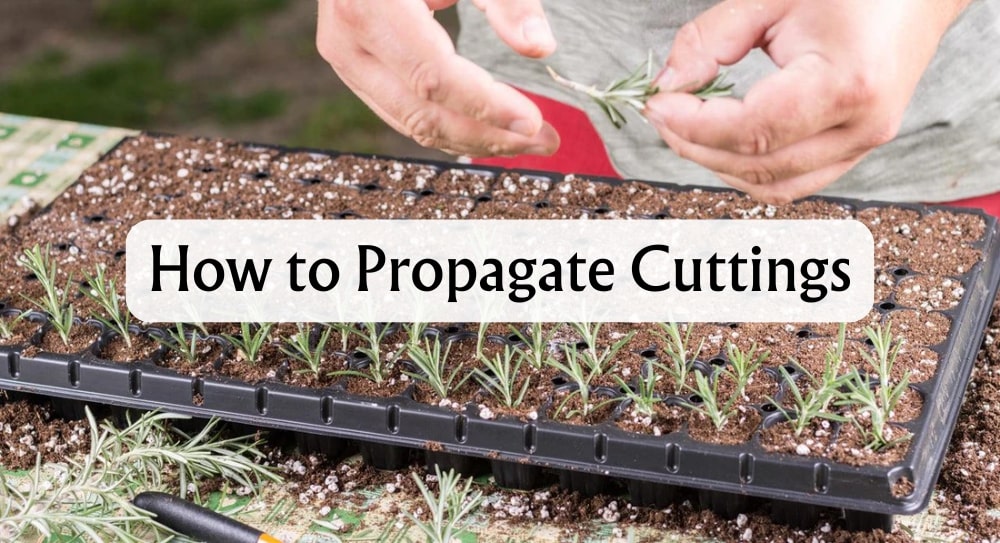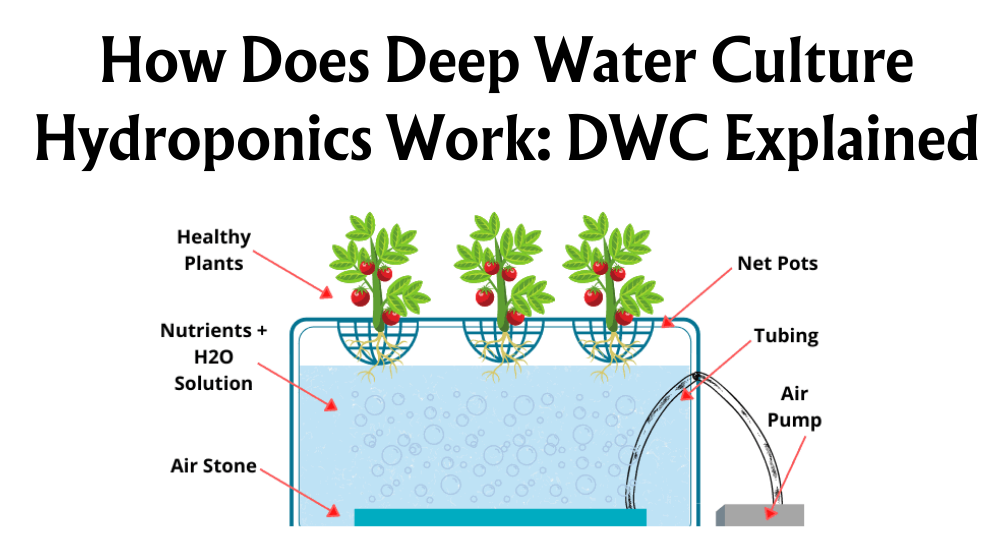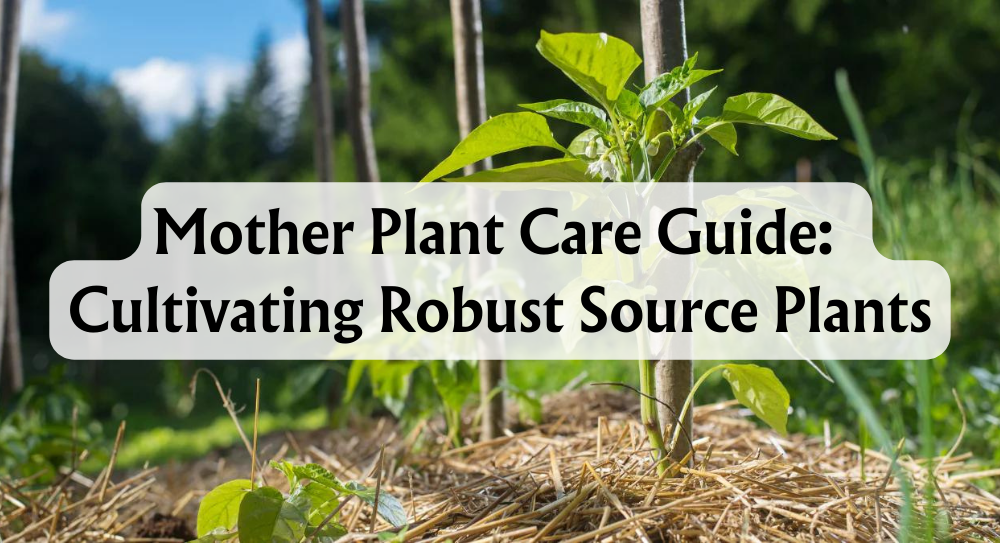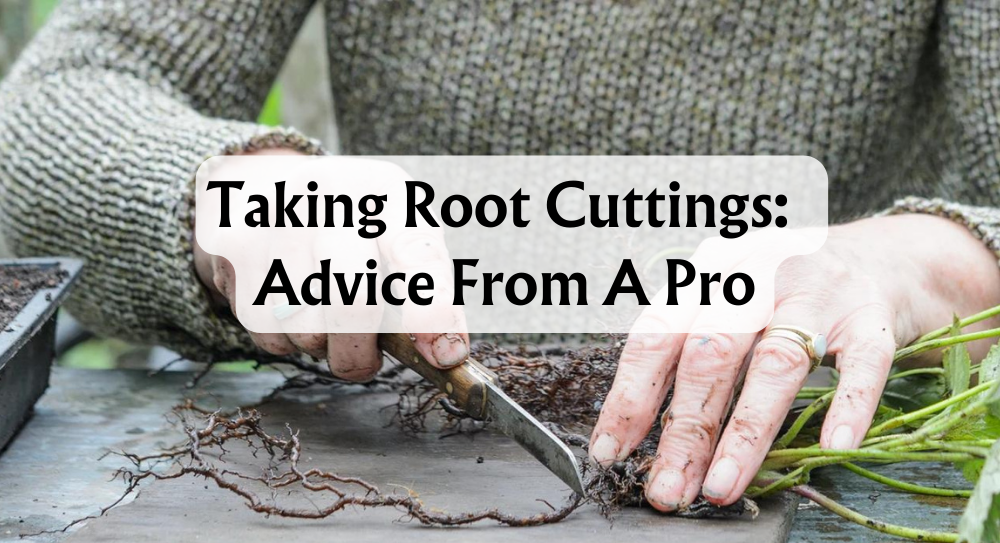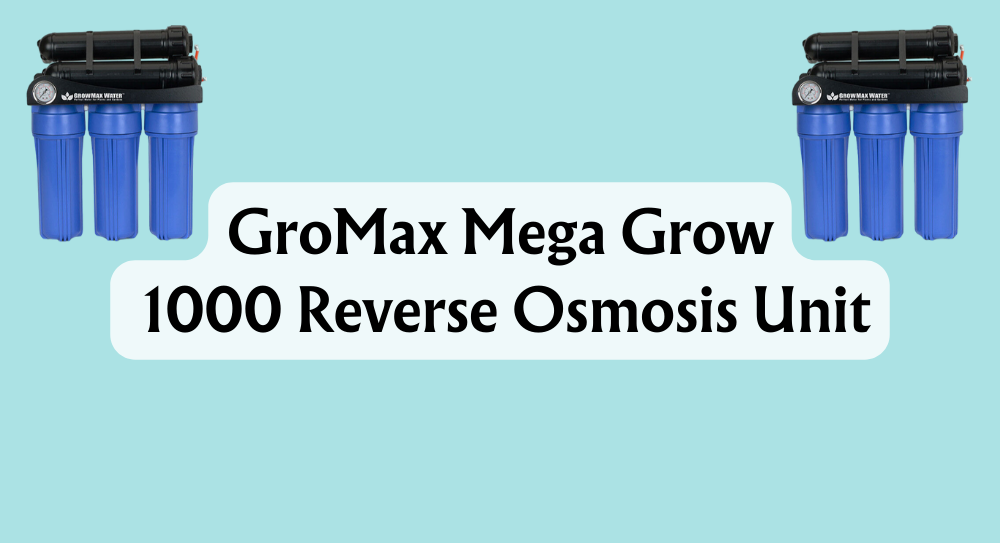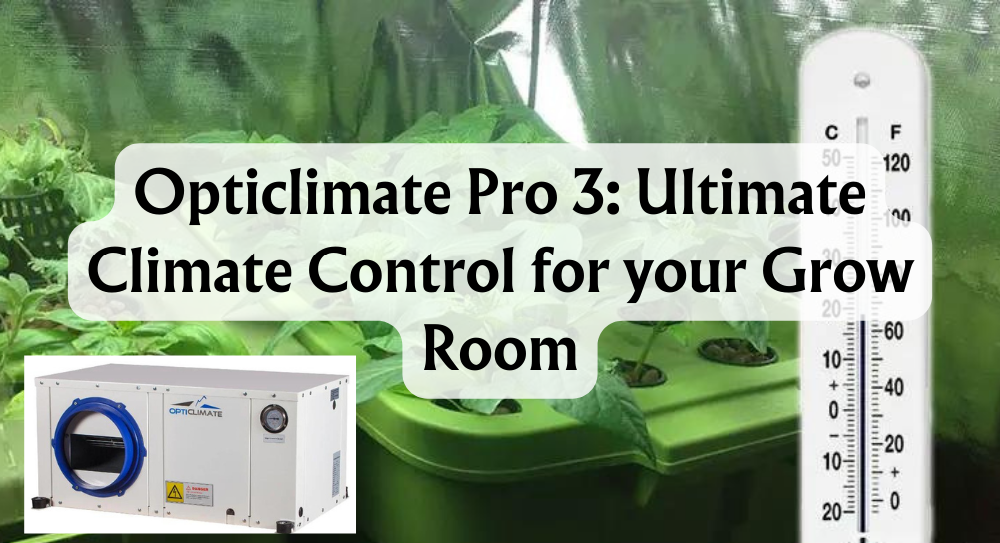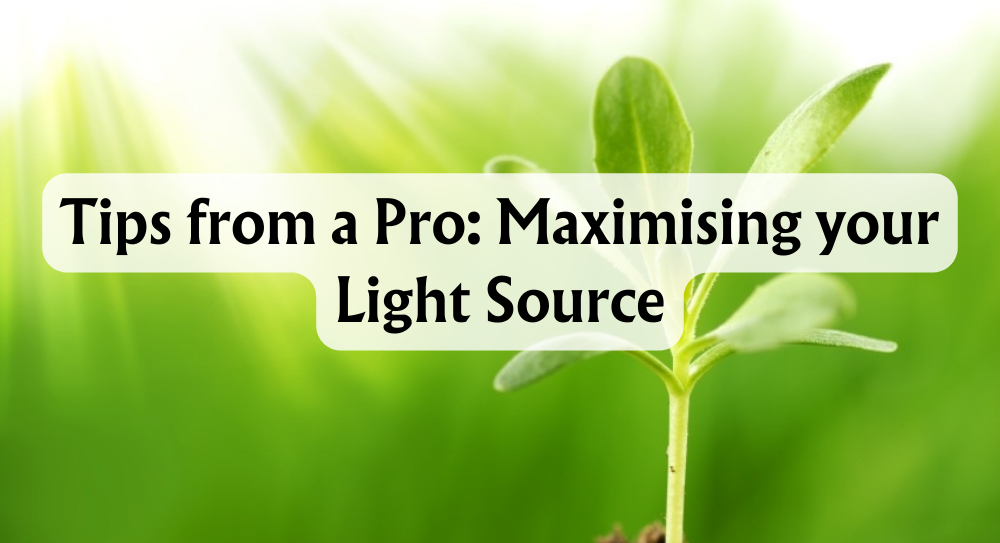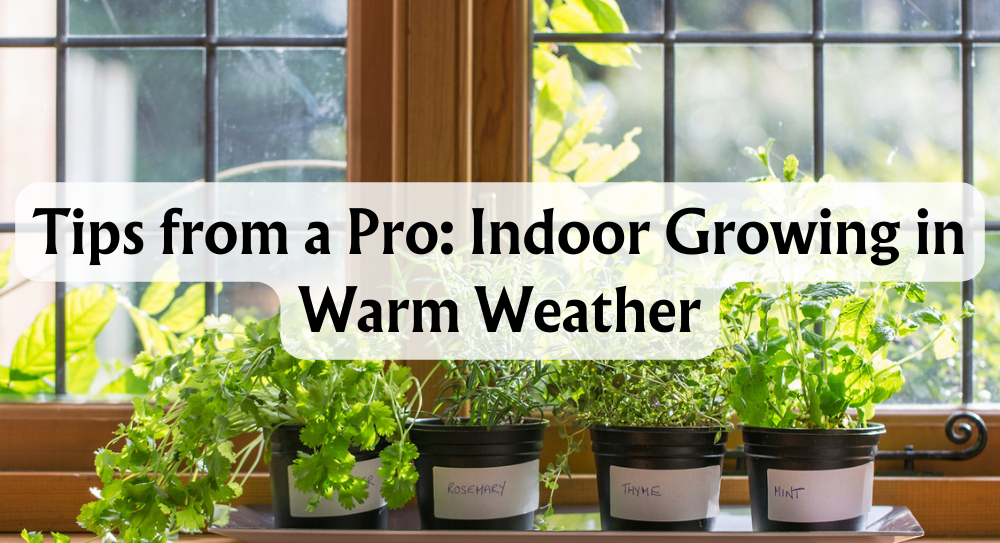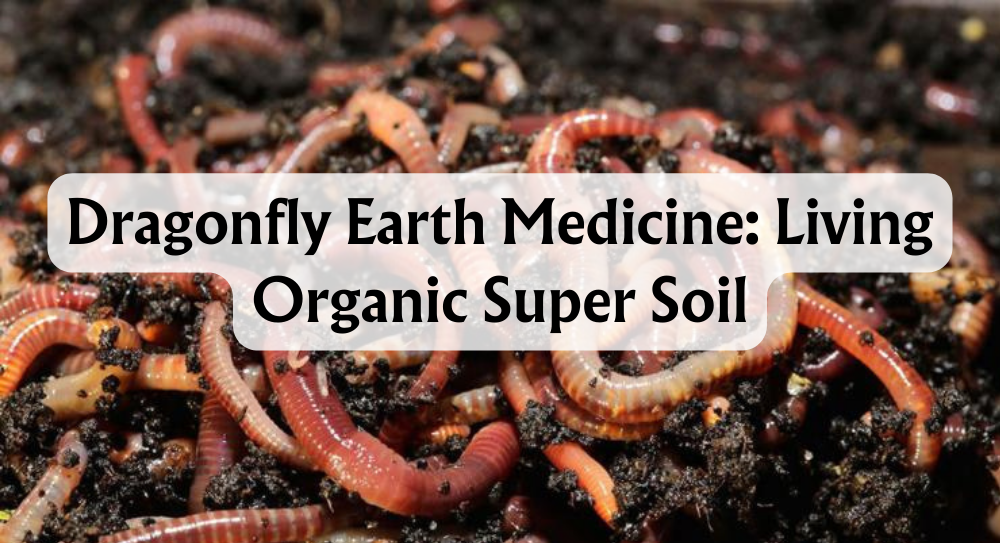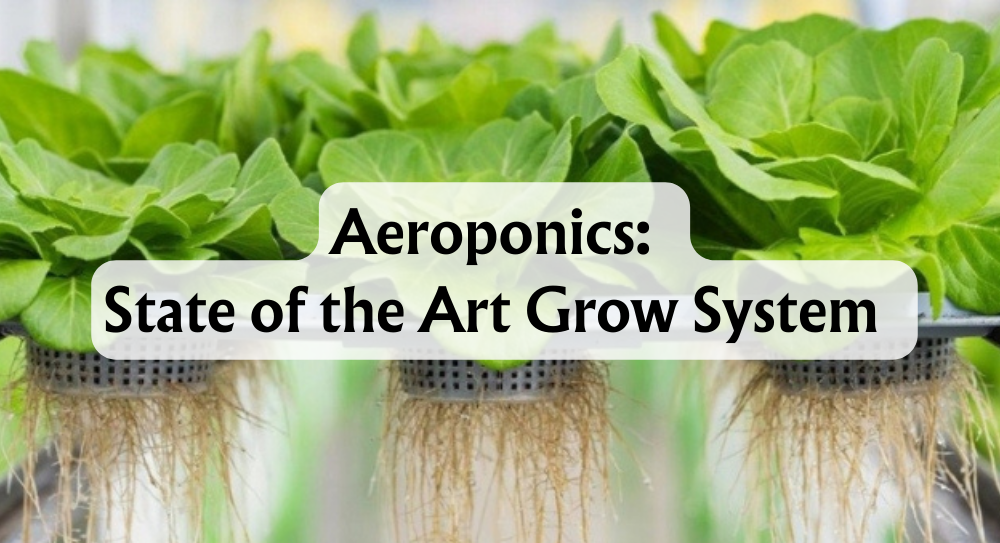Is Hydroponics Healthy: Exploring the Benefits and Concerns
Hydroponics has become a buzzword in the world of gardening, capturing the attention of green thumbs and commercial farmers alike. This innovative method allows us to cultivate plants without using soil, providing an exciting alternative to traditional farming techniques. The rising popularity of hydroponics invites an important question: is this method producing healthy food? Hydroponic vegetables are indeed nutritious, offering a comparable level of vitamins and minerals to those grown in soil.
This method of farming holds particular appeal due to its efficiency and control over growing conditions. In hydroponics, plants obtain nutrients from a solution, which allows for precise management of their nutritional intake. This results in accelerated growth and potentially richer produce, without the need for pesticides commonly found in traditional agriculture. These factors contribute to the appeal and effectiveness of hydroponic gardening, marking it as a compelling approach to sustainable agriculture.
While the benefits of hydroponics are clear, some concerns do arise about its long-term sustainability and impact. Questions about the environmental footprint of hydroponic systems and the potential use of chemicals in nutrient solutions persist. Nonetheless, as we explore this topic further, it becomes evident that hydroponics presents a promising avenue for healthy and efficient food production.
Key Takeaways
- Hydroponic produce is as nutritious as soil-grown.
- Nutrient management leads to healthier plants.
- Growing without soil reduces pesticide use.
What Is Hydroponic Growing?
Hydroponic growing is an innovative method of cultivation where plants grow without the use of soil. Instead, plants receive all necessary nutrients directly through water-based solutions. This soilless technique allows for precise control over nutrient levels, leading to potentially healthier and more productive plants.
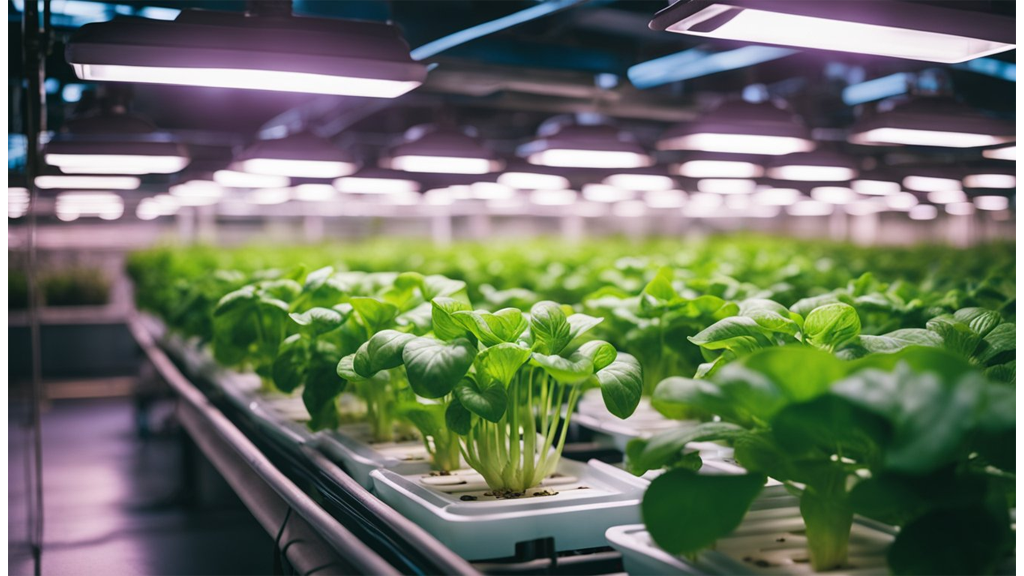
Various systems are employed in hydroponic gardening. Among them are the Nutrient Film Technique (NFT) and Deep Water Culture (DWC) systems, where roots dangle in nutrient-rich water. Aeroponics is another fascinating method, where plant roots are suspended in air and misted with nutrient solutions.
Setting up a simple hydroponic system at home is easier than it seems. Begin with a few basic components: a water reservoir, net pots, and a growing medium like rockwool. This ensures plants have stable support as they grow.
Adding a grow light can mimic sunlight, promoting healthy photosynthesis. In larger setups like a greenhouse or commercial hydroponics, advanced systems such as ebb and flow or drip systems regulate nutrient flow. Each hydroponic system features a unique way to provide nutrients and water, tailored to different plant needs.
Embracing hydroponic farming lets growers explore sustainable options in plant cultivation. By experimenting with different systems, we can discover which works best for our specific gardening goals.
Nutrition Of Fruit And Vegetables
When it comes to fruit and vegetable nutrition, hydroponics offers some intriguing possibilities.
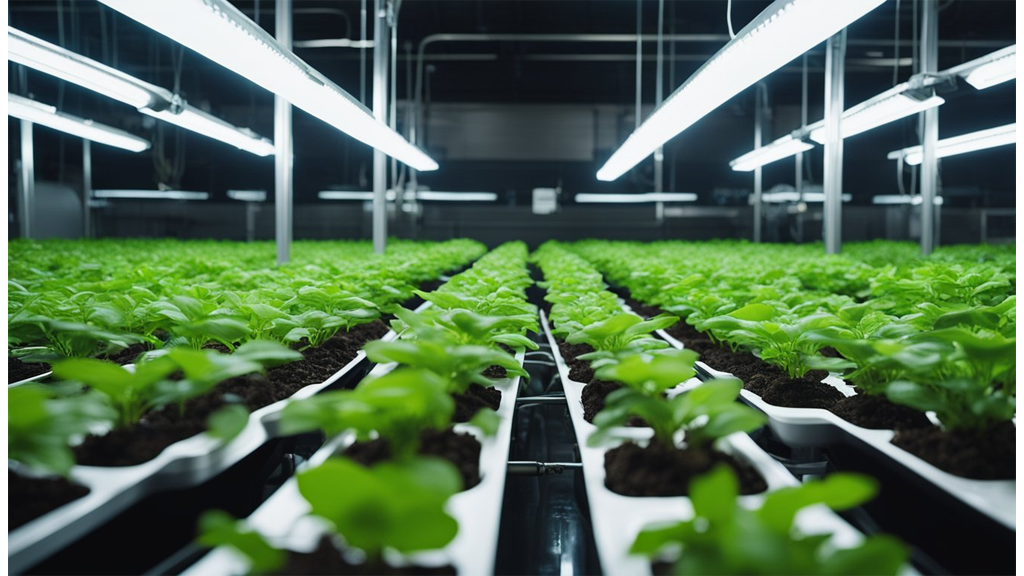
Nutrient Content Comparison
Hydroponically grown produce can be just as nutritious as soil-grown varieties. Nutrient solutions used in hydroponics are tailored to meet the specific needs of each plant, potentially boosting nutrient levels. For example, we might find that hydroponically grown tomatoes and peppers can have enhanced levels of specific vitamins.
Controlled Environments
In hydroponics, the controlled environment plays a critical role. Precise regulation of nutrients, light, and water ensures optimal plant growth, which means that strawberries and leafy greens could achieve higher concentrations of beneficial compounds.
Impact of Freshness on Nutrition
Freshness is crucial for nutritional value. Did you know nutrients degrade over time post-harvest? Our herbs and other produce are often at their peak right after being picked.
Local and Fresh Benefits
Consuming locally grown hydroponic produce helps us maximise our nutrient intake. When we choose hydroponically grown crops from nearby sources, we enjoy fresher produce that retains more of its nutrients compared to those shipped from afar.
Summary Table: Potential Nutritional Benefits
| Produce | Potential Benefit |
|---|---|
| Tomatoes | High vitamins with tailored nutrients |
| Peppers | Enhanced vitamin content |
| Strawberries | Higher beneficial compounds |
| Leafy Greens | Optimal nutrient concentration |
| Herbs | Maximum freshness and taste |
We can optimise our health by making informed choices about the fruit and vegetables we consume. Hydroponics provides a unique opportunity to access fresh and nutritionally rich produce, grown with precision and care.
Do Hydroponics Use Chemicals?
In hydroponic systems, nutrient solutions are key to providing plants with the essential minerals they need. These solutions typically consist of water mixed with food-grade fertilisers, ensuring that plants receive a balanced diet without excess. It’s crucial to use the right proportions and to regularly monitor the solution's composition to prevent nutrient imbalances.
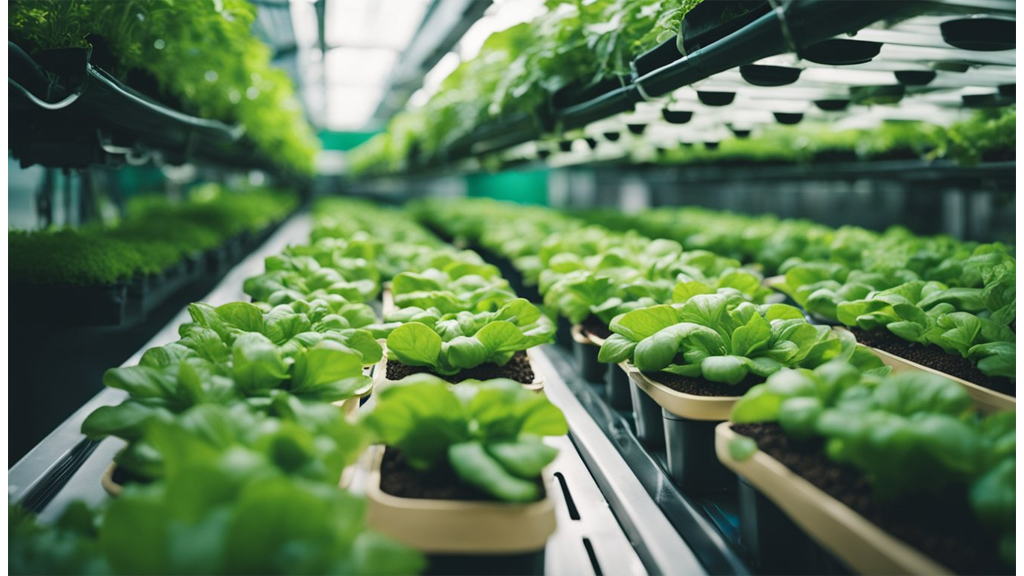
Due to the controlled environment in hydroponics, our reliance on pesticides and herbicides is significantly reduced. This controlled setting minimises the risk of pests and diseases usually present in traditional soil-based farming. Instead of chemical solutions, we might use methods like beneficial insects or netting to manage pests.
When used responsibly, hydroponic nutrient solutions are safe for growing edible plants. They are designed to be non-toxic, aligning with existing food safety regulations. Proper disposal and management of these solutions are necessary to ensure they do not pose an environmental risk.
We often find hydroponic produce to be cleaner because of reduced exposure to contaminants. This appeals to those of us who are conscious of the safety and health impacts of conventional farming chemicals. By emphasising food-grade, non-toxic solutions and limiting harsh chemicals, hydroponics supports a safer, sustainable approach to farming.
Is Hydroponic Water Toxic?
When it comes to hydroponics, water quality is paramount for plant health and human safety. Clean, potable water is essential in these systems. We need to ensure that the water we use is free of harmful contaminants and appropriate for plant growth. Regular monitoring and maintenance help keep the water safe and avoid any unwanted substances.
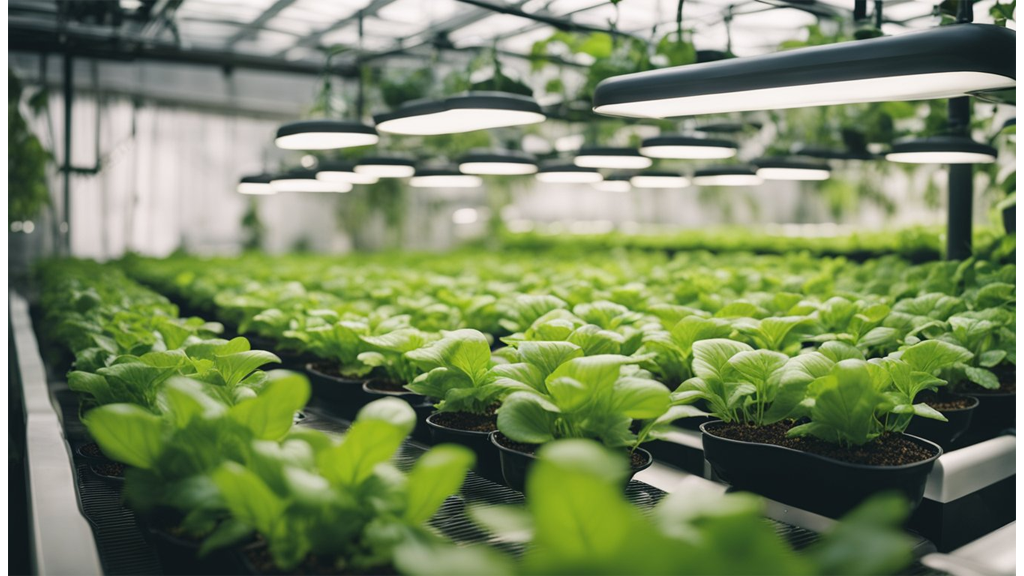
To protect our hydroponic systems, additives like hydrogen peroxide are often used. These additives help in preventing root rot and support plant well-being. It's important to use these additives carefully, especially when growing plants meant for consumption. Safety considerations, such as appropriate concentration levels, ensure they do not pose any risks to edibles.
High-quality water keeps our plants thriving and prevents potential health concerns. It's advisable to use filtered or distilled water to minimise the risk of contamination. With such precautions in place, we can confidently grow nutritious hydroponic vegetables without health risks.
Are Hydroponic Vegetables Nutritious?
Hydroponic vegetables often match or exceed the nutritional content of their soil-grown counterparts. The method offers several advantages in terms of mineral content, freshness, and the use of fewer pesticides.
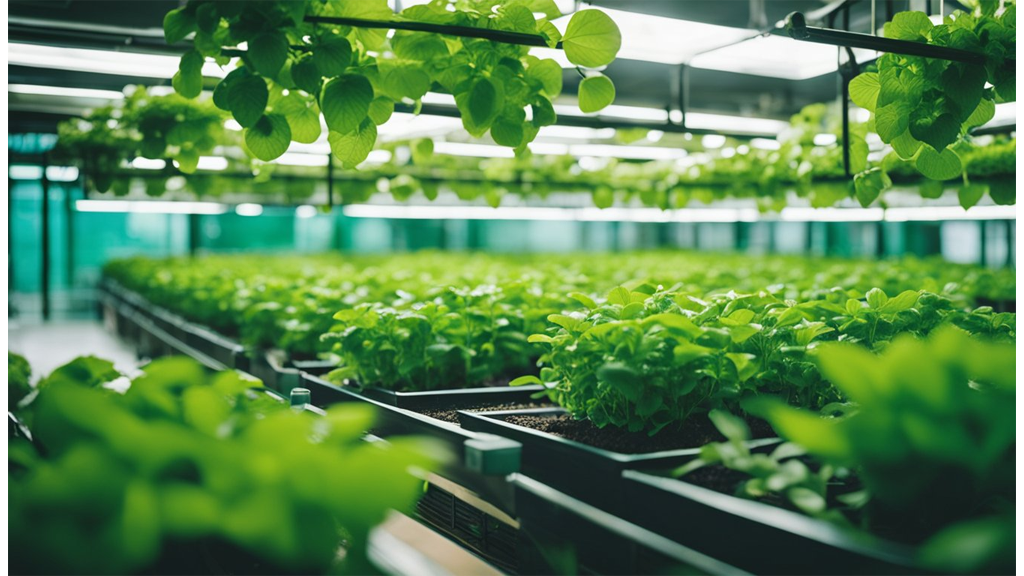
Minerals
When we examine the mineral content, hydroponic vegetables can be as rich as traditional ones. They can even surpass them under optimal conditions. The nutrient solutions used in hydroponics are carefully controlled, allowing us to adjust mineral levels to maximise absorption.
In contrast, soil-grown vegetables rely on the soil's mineral content, which can vary. This means hydroponics can provide more consistent results if managed well. Factors such as water quality and nutrient solution composition play vital roles in mineral uptake.
Freshness
A key benefit of hydroponic farming is the reduced time from harvest to table. Because these farms often operate closer to urban centres, vegetables reach us quicker, ensuring maximum freshness. This leads to better nutrient retention as transported produce tends to lose nutrients over time.
Immediate consumption of fresh produce can enhance our health benefits. Quick harvesting and distribution cycles mean that we experience the fruits and vegetables at their peak flavours and nutritional value.
Vitamin Levels
Research indicates that vitamin levels in hydroponic produce are comparable to or higher than those in soil-grown produce. This variation depends on factors like nutrient solutions and light exposure, both optimised in hydroponic systems. These environments enable us to manage light and nutrients, enhancing vitamin synthesis.
For example, controlled environments allow us to provide consistent light exposure, which can boost the levels of vitamins such as vitamin C. Hydroponics can indeed tailor growing conditions to optimise nutritional profiles efficiently.
Controlled Environment
In hydroponics, controlled environments are advantageous for maintaining plant health and boosting nutrient content. Urban farms can efficiently provide consistent quality produce year-round. We see improved yields and quality through the management of temperature, humidity, and light.
By using a controlled setting, we mitigate environmental stressors such as pests or seasonal variations. It allows us to ensure continuous production, regardless of external climates, making hydroponically grown vegetables reliable.
Fewer Pesticides
Hydroponic systems often require fewer pesticides due to their controlled nature. With fewer pests to worry about, we apply chemical interventions less frequently. This results in produce that's healthier and safer to consume, with negligible pesticide residues.
Less pesticide use also means reduced environmental impact. By lowering chemical usage, we contribute to a healthier ecosystem, offering a significant benefit for both us and our environment.
Conclusion
Hydroponic farming offers a safe and healthy way to grow fruits and vegetables. We can ensure that the produce is free from harmful pesticides, as hydroponics often eliminates the need for them. This growing method allows us to tailor nutrient solutions, leading to nutrient-rich produce that supports our health.
For anyone interested in adopting this approach, hydroponics is a viable method that can yield nutritious and safe produce. It is ideal for gardeners with limited space or unfavourable soil conditions.
Exploring hydroponics can introduce us to a world of resources and tutorials to help set up a home system. With so many tools at our disposal, starting a hydroponic garden is more accessible than ever. Let's embrace this innovative technique and enhance our gardening efforts.







 Store Locator
Store Locator
